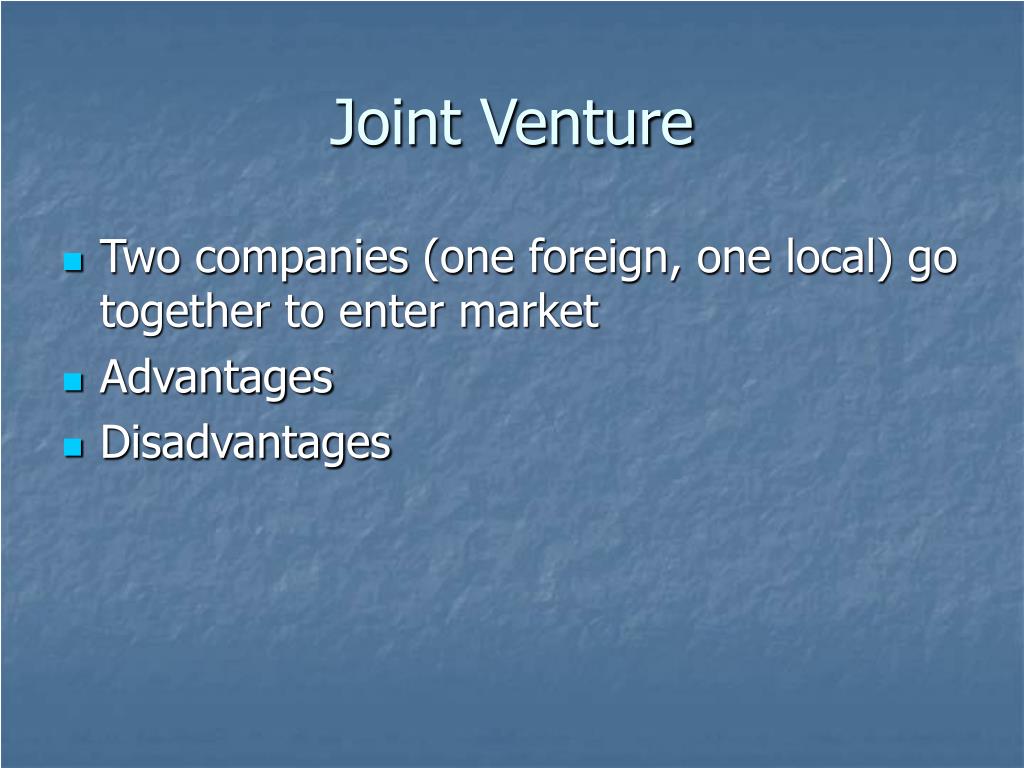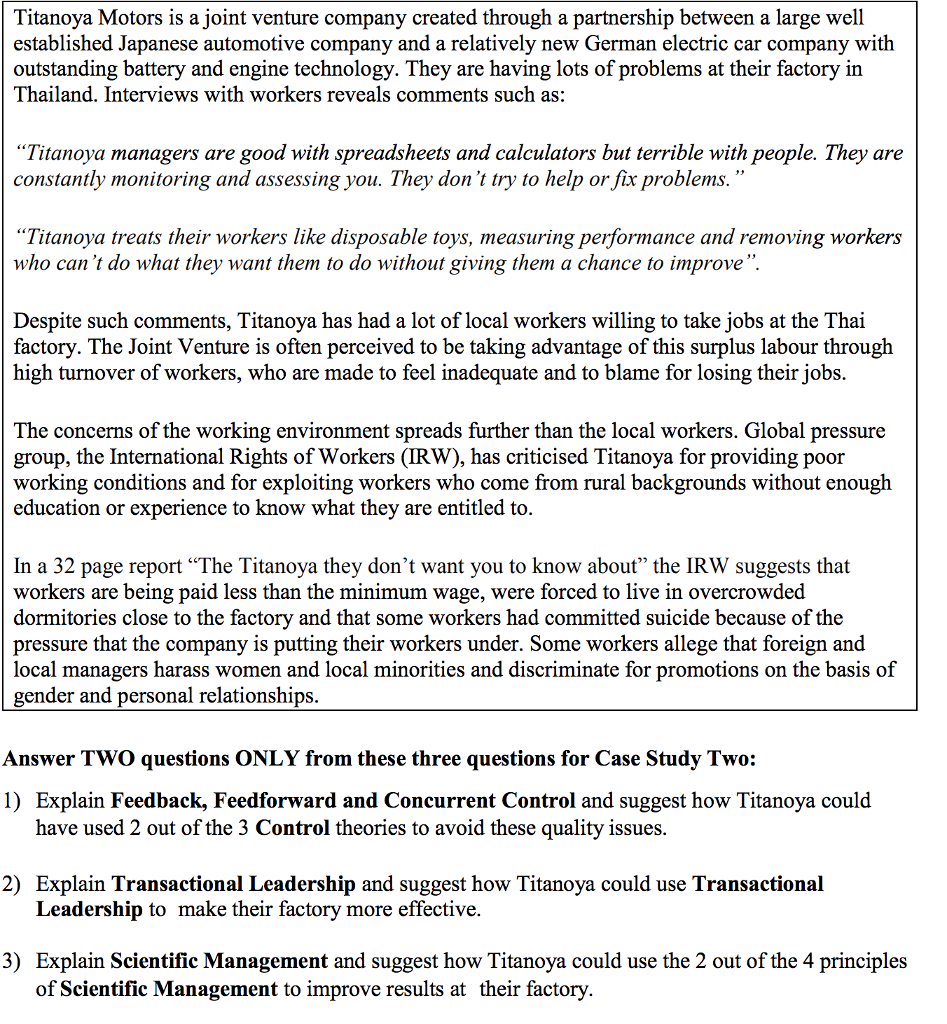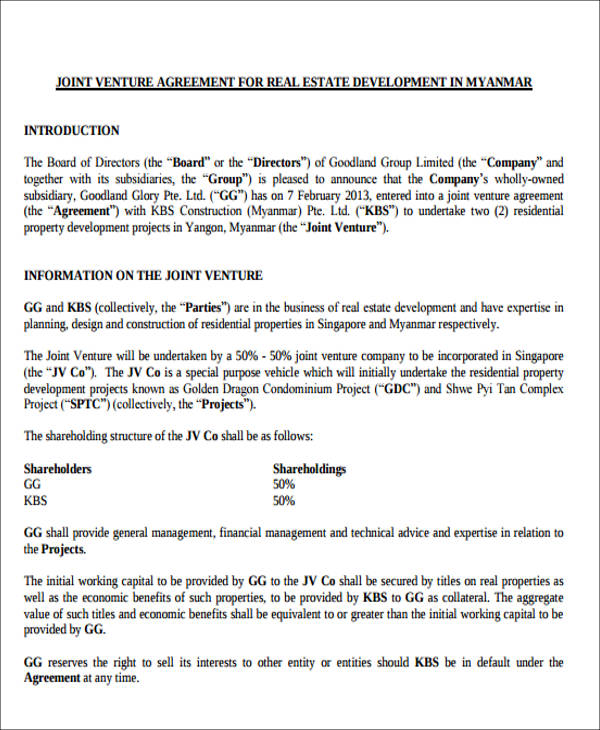

To mitigate this risk, it is important to clearly define roles and responsibilities from the start and establish a system for making decisions that are fair and efficient. This may lead to conflicts and disagreements, which can slow down or even halt the progress of the JV. In a JV, two or more companies come together to form a new entity, but they must share control and decision-making power. One of the biggest risks of JVs is the lack of control and decision-making authority. Lack of Control and Decision-Making Authority These differences can create tension and make it difficult to achieve the goals of the joint venture. Additionally, different companies may have different approaches to risk management, budgeting, and other key aspects of running a business. Each company may have its way of running its operations and achieving its goals, and these differences can lead to conflicts and misunderstandings.

Clash in the Management Styles and TechniquesĪnother risk associated with joint ventures is a clash in management styles and techniques between the parties involved. There are also laws related to intellectual property, labour, and taxes that can make it difficult for joint ventures to operate in India. For example, the Foreign Exchange Management Act (FEMA) regulates foreign investment in India and imposes restrictions on the repatriation of capital and profits. India’s legal system is based on a mix of common law and civil law, and several laws and regulations can impact joint ventures.

One of the biggest risks of joint ventures in India is the country’s complex legal and regulatory environment. To know furthermore in this regard, connect with Vakilsearch, our legal advisors are always ready to assist you. In this blog we’ll learn about risks of joint ventures. However, joint ventures also come with several risks that must be carefully considered before entering such an arrangement. In India, joint ventures have become increasingly popular in recent years as foreign companies look to tap into the country’s rapidly growing economy. Joint ventures can take many forms, from a simple partnership to a complex merger, and they are often used to enter new markets, develop new products, or share the costs of a large project. IntroductionĪ joint venture (JV) is a business arrangement in which two or more parties agree to combine their resources to achieve a specific goal. This article attempts to throw light on the legal and financial implications of joint ventures, the need for strong partnerships, and managing the potential risks of joint ventures in India.


 0 kommentar(er)
0 kommentar(er)
